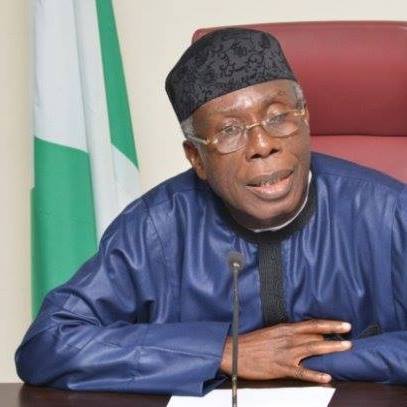The Man Who Stood When Others Bent: Audu Ogbeh’s Final Lesson to Nigeria, by Stephanie Shaakaa

Chief Audu Innocent Ogbeh’s life did not simply begin on 28 July 1947 in Otukpo, Benue State. It began in the quiet discipline of a boy whose soul belonged to Efugo. the village that cradled his heritage and shaped his convictions. Born in Otukpo, where his father worked alongside an expatriate, he grew up between the brisk pulse of town life and the unhurried rhythm of village soil. From both worlds, he learned dignity, vision, and the unshakable heart of his people.

At St. Francis Primary School, he discovered the alphabet of ambition. At Mt. St. Michael’s Secondary School, Aliade, he mastered the discipline of the mind. At King’s College, Lagos, he stood among the nation’s brightest. Ahmadu Bello University expanded his horizons, the University of Toulouse in France sharpened his global vision. Every step was deliberate. Every classroom forged curiosity into conviction.
He returned to Nigeria not just as a young man from Otukpa, but also as a mind prepared to meet history.
From lecturer at ABU to pioneer at Murtala College of Arts, Science and Technology in Benue, he stepped into politics in 1979, becoming Deputy Speaker of the Benue State House of Assembly. He rose to Minister of Communications, bringing postal services to rural communities including Otukpa and Orokam and later served as Minister of Steel Development, National Chairman of the PDP, Minister of Agriculture, and Chairman of the Arewa Consultative Forum.
He did not drift into the corridors of power. He walked in with convictions that could not be bent even when it cost him dearly. As PDP Chairman, when presidential pressure clashed with his principles, he resigned rather than compromise. In a political culture drunk on patronage, he refused to trade jobs or contracts for bloodlines or favours. It earned him criticism, but also something rarer,the right to look himself in the mirror without flinching.
Long before his agriculture portfolio, he was a farmer at heart. Efugo Farms in Makurdi produced rice, created jobs, and spread his gospel. Nigeria must return to the land. As Minister, he pushed for local rice production, mechanization, and export markets. His vision was big enough to set expectations sky-high and big enough to face scrutiny when the harvest fell short.
Frugal, disciplined, allergic to waste, some called it stinginess, others saw the prudence of a man who believed public office was not a feeding trough.
He loved culture, wrote plays like Epitaph of Simon Kisulu, supported Mt. St. Michael’s Aliade, and built a church for his Efugo community.
Audu Ogbeh was not just a statesman he was one of Nigeria’s sharpest philosophical minds. A walking library of history and quotations, he could hold a hall of dignitaries in rapt silence. He might open with, “In 1874, Otto von Bismarck, standing at his friend’s graveside, said…” and from there, build a seamless, thought-provoking discourse. No matter how long he spoke, you wished he would go on.
On 9 August 2025, at seventy-eight, his voice fell silent. President Tinubu called him a patriot whose wisdom left an enduring mark. Former President Obasanjo called him a peace-loving democrat who faced storms without bending. But beyond tributes lie harder truths.
When God blesses you, do not turn your back on your people, they will remember your absence as much as your presence.
Service is an opportunity to lift others,history will remember if you fail.
A man can plant seeds knowing he may never sit in their shade, and still plant them anyway.
His road was never smooth. For every applause, there was a dagger. Wounds came not from enemies, but from the silence of those he once defended. Seasons when his name opened every door, and seasons when friends forgot his number. He knew the taste of dust and still dreamed of orchards.
He carried scars like medals, proof that he stood his ground when others bent. His laughter could fill a room, his silence could empty it. The same hands that rebuilt his own life built bridges for others. He wore his crown not on his head, but in the quiet dignity of his steps.
Now his journey is complete. His voice is gone, yet his silence thunders. It reminds us that leadership without integrity is fraud, and power without service is an empty throne.
The seeds he planted may yet grow into the Nigeria he dreamed of if we dare to tend them. His greatest gift is not applause, but example.
He leaves us with one truth.The highest office any man can hold is a clean conscience.
The post The Man Who Stood When Others Bent: Audu Ogbeh’s Final Lesson to Nigeria, by Stephanie Shaakaa appeared first on Vanguard News.







